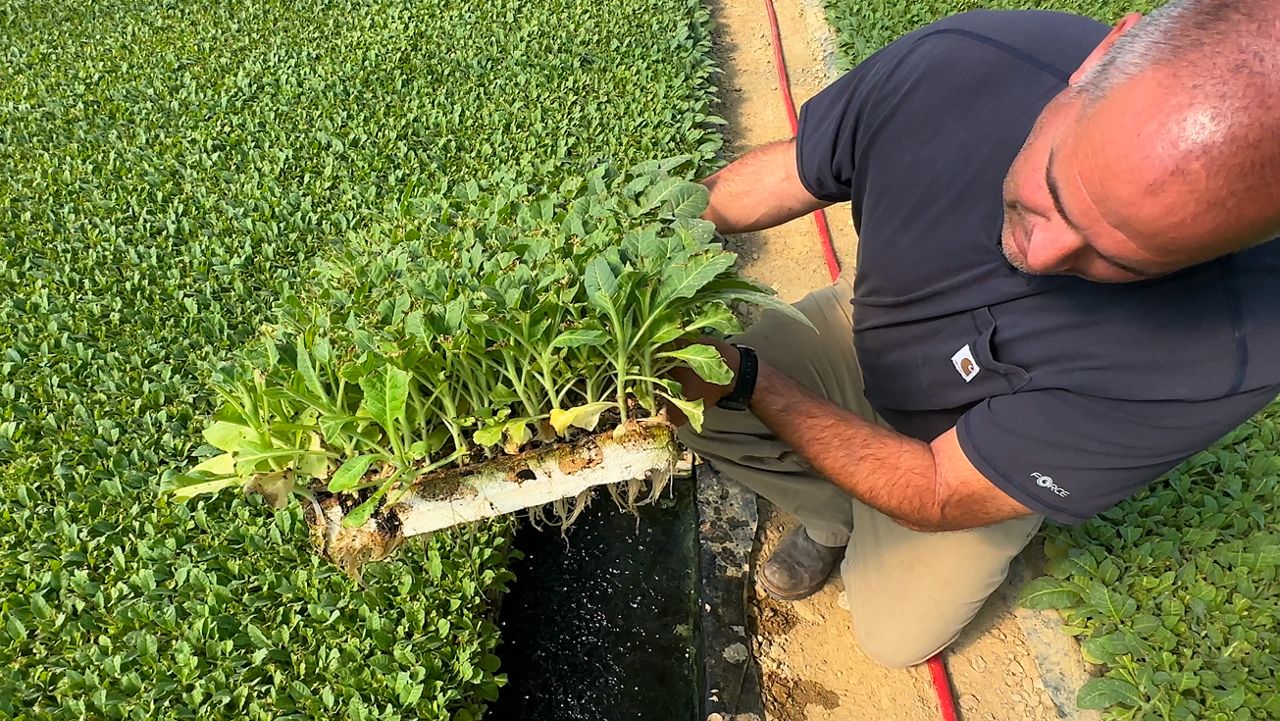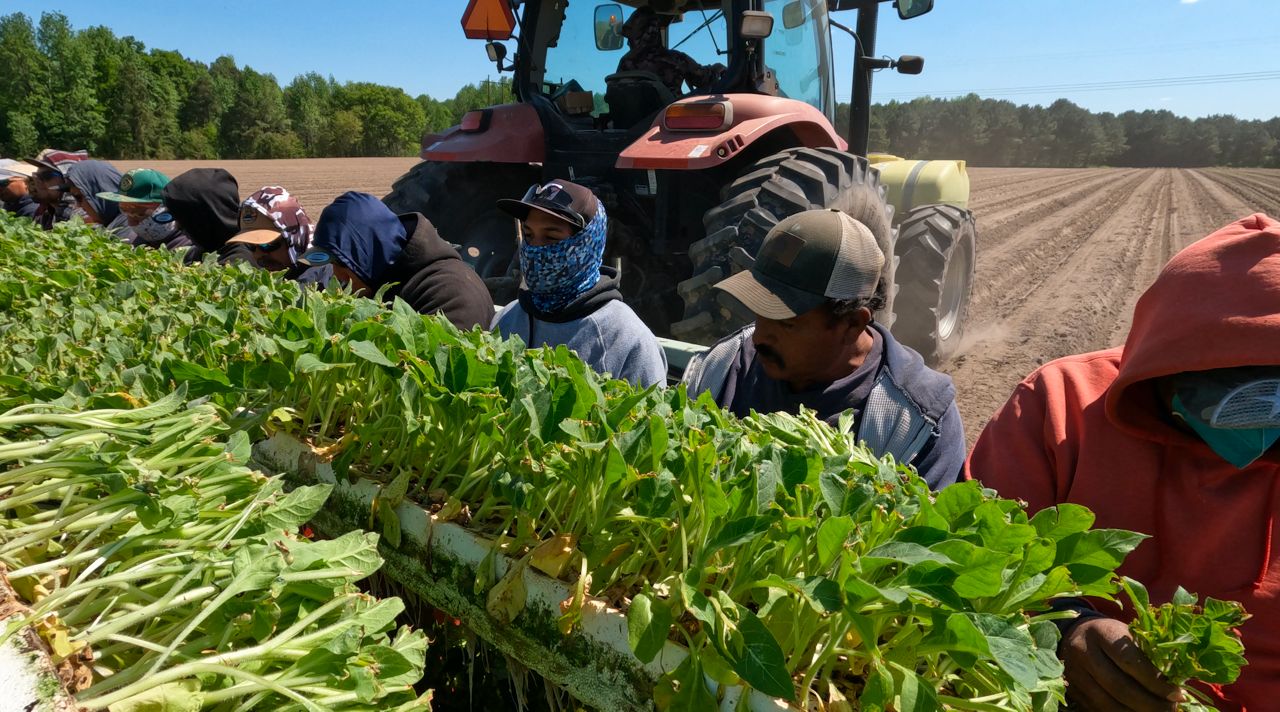LUCAMA, N.C. — Global trade wars have left some farmers in limbo on what high taxes on their products will mean for business.
What You Need To Know
- President Donald Trump is proposing tariffs exceeding 145% on goods exported to China
- Trump said he would protect farmers amid trade wars with China
- North Carolina farmers say they would feel protected with no tariffs at all
- Some farmers may fear other countries with the same goods could make a better trade deal with China in the meantime
North Carolina was the 15th largest state exporter of goods in 2024, according to the Office of the United States Trade Representative, totaling $42.8 billion.
Many cash crops from North Carolina, including soybeans and tobacco, bring billions of dollars annually to the state through export to China.
The US China Business Council says 14% of the state’s global exports went to China in 2023. Many farmers, like Brooks Barnes, are wondering what this will mean for their livelihood.

“It's a long time from now to the harvest time and I really hope and pray by then we got some answers,” said Barnes, a farm owner in Wilson County who grows various crops like soybeans, tobacco and sweet potatoes.
President Donald Trump is currently looking for an over 145% tariff on exports to China, with China countering hefty levies of their own.
“If they completely boycott U.S. agriculture and say, 'nope, we're not buying anything at all.' No soybeans. No tobacco. No nothing, there's going to be some sad times, and not only in North Carolina, but in the United States, period,” Barnes said.
Barnes says many crops like soybeans, won’t be harvested until October. Leaving room for other top producers of North Carolina’s cash crops, like Brazil, to make trade deals with China.
“We need people like China that buy a tremendous amount of our U.S. crop each year to be on board. And not lose that customer,” Barnes said.
Which could become a domino effect on other industries.
“Not just people in the AG [agricultural] industry, but people all together that could be impacted. It's your livelihood. It’s their livelihood, it's my livelihood,” Barnes said.
As Barnes is gearing up to plant his 400 acres of tobacco, putting in around $4,600 an acre and paying anywhere from 25 to 80 employees a day, he understands its a high cost, high profit crop.

“That's about 2 million bucks I got invested just in my tobacco crop, and I've got to get every cent of that back before I've made a penny,” Barnes said.
Weather is one constant he can’t control, with Wilson County losing around $29 million last year for gross income on products from weather and Barnes adding hundreds of dollars to the cost of tobacco per acre.
“Last year, it was probably more like $5,000 because we had a tremendous, tremendous amount of rain in July and fertilizer leaches,” Barnes said.
Tariffs are just another variable he can’t control and while Trump has said he would protect farmers amid negotiations with China, Barnes says the only way he would feel protected is with no tariffs.
"You put [money] back for rainy days because there are going to be rainy days in any business. I would go on out on a limb and I would make this statement, a person that is not financially stable right this minute could very easily be put out of business by this,” Barnes said.
Barnes said to make ends meet, he may cut costs on personal spending or not buy new equipment, which could lead to higher costs in the future.






